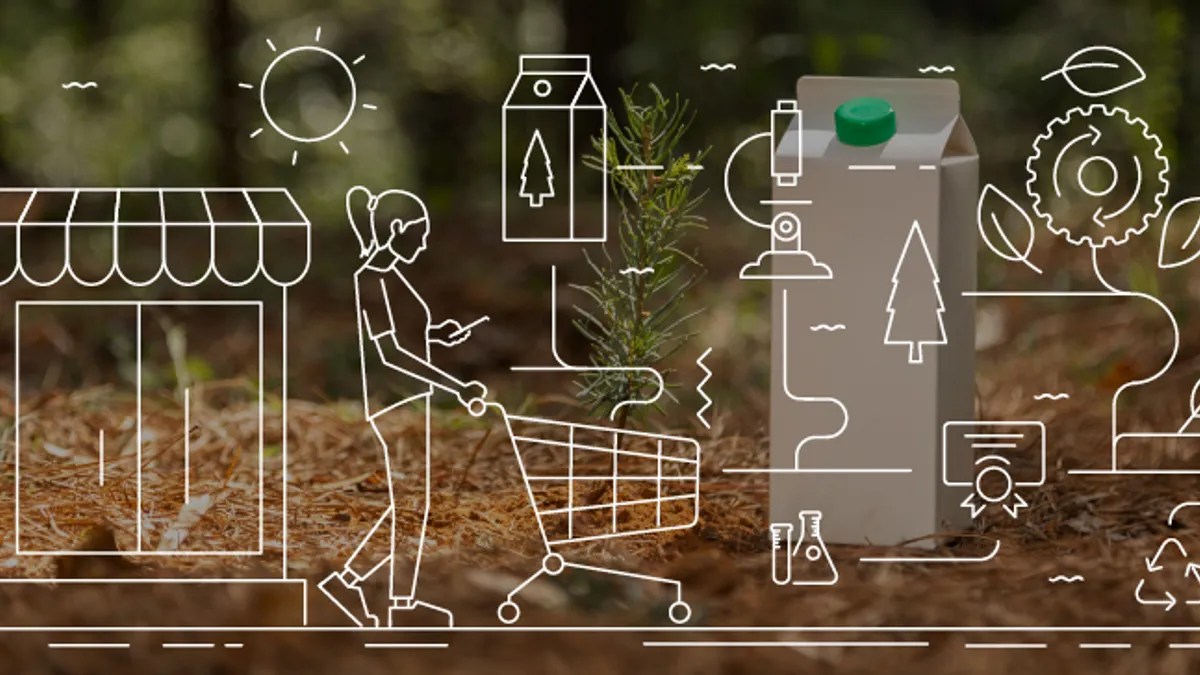Trend watchers worldwide are pointing to ‘plant-based’ as a global trend in 2019, and the opportunities for the grocery industry are significant.
Global market dynamics in 2018 found more consumers focusing on the types of packaging retailers offer on the grocery aisle. According to the 2018 EcoFocus Trend Study conducted by EcoFocus Worldwide, plant-based food and beverage packaging is now on the minds of more than three quarters of U.S. consumers. Three out of four (76%) grocery shoppers in 2018 say they have heard or read about plant-based food or beverage packaging, and 62% want to learn more about it. Nearly half of shoppers are already shopping with plant-based packaging in mind: 46% of grocery shoppers in 2018 strongly agree or agree they “try to buy packaging that is made with plant-based materials” and 47% say plant-based packaging is extremely or very important for healthy beverages.
The trend comes as shoppers are looking to grocery retailers to help them achieve their lifestyle goals. Fifty-seven percent of grocery shoppers say it is extremely or very important “to choose a grocery retailer who makes it easy for me to make eco-friendly choices.” Providing food and beverages in plant-based packaging creates opportunities for retailers to differentiate their brands and align with consumer values. The trend identified in the study is reinforced by other thought leaders in the grocery and packaging industries. Retailer Whole Foods identifies packaging as one of its top ten trends in 2019 saying “packaging continues to be one of sustainability efforts biggest issues.”
For many consumers, it is all about health. Personal health and environmental health are each top of mind.
The EcoFocus Trend Study finds that 64% of grocery shoppers strongly agree or agree “I have changed what I buy in order to reduce our exposure to chemicals from food or beverage packaging,” up nine points since 2014. Four in ten or more consumers believe plastic and metal packaging can leave undesirable or harmful chemicals in their foods and beverages. Glass bottles and refrigerated cartons are considered to be the least likely to do so.
In 2018, 61% of grocery shoppers also strongly agree or agree they “try to buy beverages that use less plastic in their packaging”, and 48% strongly agree or agree they “try to buy packaging that is mostly made out of paper.” Because paper packaging is derived from trees – plant based – it has the additional benefit of coming from a renewable resource, one that can be regenerated.
For grocery stores already offering plant-based foods and beverages for consumers, offering those foods and beverages in plant-based packaging is a logical next step. Packaging choices can enable retailers to leverage this important trend in a meaningful way.
Download the whitepaper from Evergreen Packaging, “Trend Watchers Say the Topic of the Year for Food and Beverage Might Be ‘Plant-Based,” to learn more.
Evergreen Packaging makes and supplies paper and paperboard products globally, including gable top cartons. Fiber used in Evergreen Packaging products comes from forests in the US where responsible forestry practices are used and where overall growth exceeds harvest. Evergreen Packaging cartons contain protective layers of plastic (including cap and spout). The data presented here is not intended to suggest that Evergreen Packaging products have all attributes discussed in this piece. This publication presents data on consumer perceptions because consumer perceptions matter when shoppers choose which products to purchase.
The EcoFocus Trend survey is an annual tracking study, conducted since 2010, examining wellness and sustainability trends impacting the food and beverage industry. The study is conducted online annually among 4,000 adults. The data is nationally projectable to the US adult population ages 18 to 65 years with a margin of error of +/- 1.39 points in 2018.










